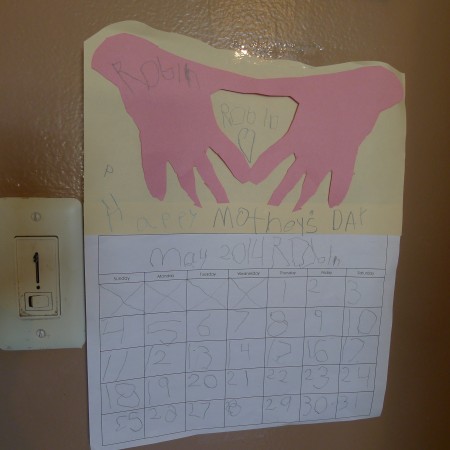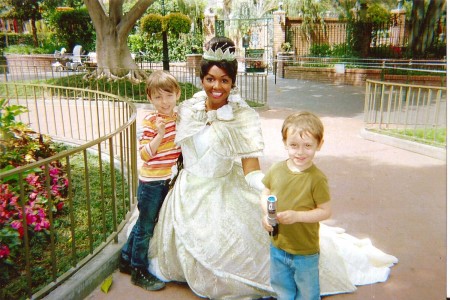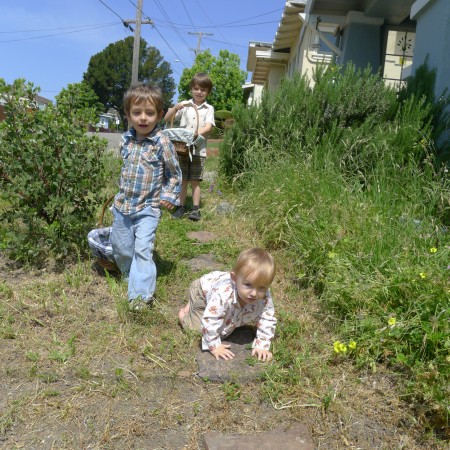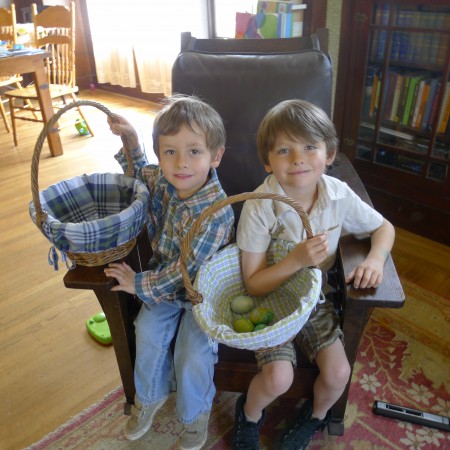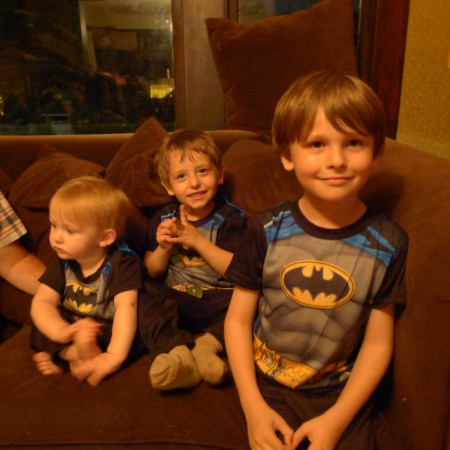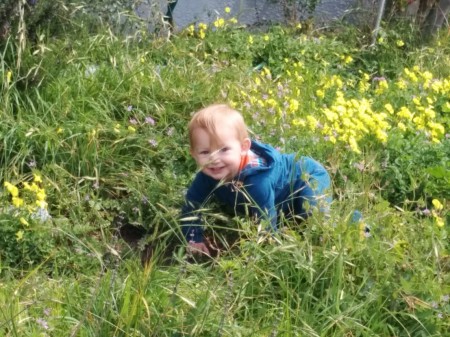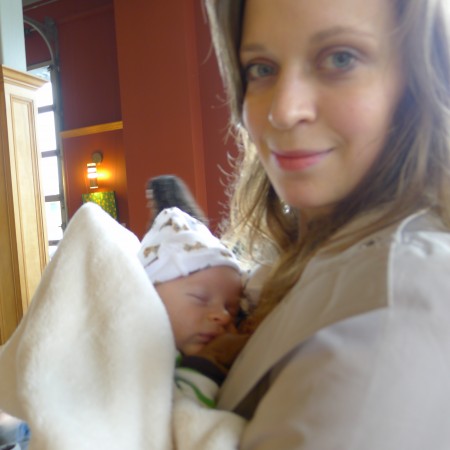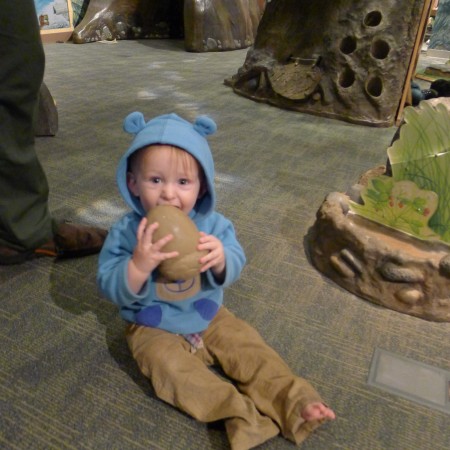Bow to the Mouse
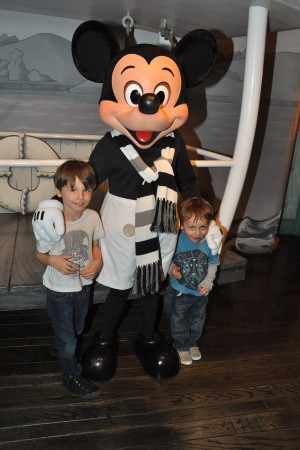
We went to Disneyland! And everyone was super nice to us and we had a great time. We actually went in April, but it’s taken me ages to write about it, mostly because I have a weird fascination with Disneyland that’s hard to explain.
It’s only my second trip to Anaheim, and my third to a Disney theme park. I went to Walt Disney World as a kid, with my mom. When I told her about our vacation plans, Mom said: “What I remember from that trip is that at the end of the day my face hurt, from smiling so much.”
I don’t remember that trip much, but when I went to Disneyland as an adult it was with Sam and my friend Frank Jones, who’s something of a Disneymancer. He has such a deep understanding of the place, its tidal ebbs and flows, that he was able to lead us from ride to ride as the crowds parted around us. Afterwards I told Frank that I was mostly struck by the psychology of the place. It’s obvious that every turn of path, every flower and shrub, has been carefully selected to keep the visitors happy and calm: and I wanted to know how they did that.
Frank pointed me to a couple of books: Designing Disney (A Walt Disney Imagineering Book) and Designing Disney’s Theme Parks: The Architecture of Reassurance
. These are both great! The first is a collection of interviews and reminiscences with some of the “imagineers” who built the park, while the second is a more academic analysis of Disneyland’s place in the cultural zeitgeist.
Both confirmed what I’d intuitively felt: every aspect of Disneyland—from the placement of physical structures and paths to the selection of colors to the “random” appearance of street performances and signature characters—is engineered to produce a particular response. Disney wants its guests to feel “playful”—excited, yes, but a trusting excitement rather than a nerve-jangly one. Disneyland offers reassurance but it never cedes control.
The parks are designed so that a fresh adventure beckons any way you turn, and no choice is wrong. At the same time, there’s a moralizing element to the landscape: Walt was a railfan, and the Disney theme parks subtly push an anti-car and pro-mass-transit ethos along with a relentless optimism in technology and progress. This futuro-utopianism has, ironically enough, became almost quaint. In modern sci-fi the naïve dreams of the Rocket Age have curdled into punk-anarcho-cynicism: but at Tomorrowland everything is still brightly painted and headed for space.
From Designing Disney’s Theme Parks:
If Disneyland as a whole—its spatial reassurances and human scale, its concern for providing visual pleasure, its walkability and fanatical cleanliness—was a critique of Los Angeles and the modern city, then Tomorrowland was supposed to be the spot where solutions to urban problems were dramatized. A place where Walt could try to articulate a future so compelling that his guests and their children would want to go home and make it all come true, down to the moving sidewalks and the dancing fountains…In the early 1960s, Walt’s inner circle of Imagineers (“imagineering” is surely the ultimate Tomorrowland word, redolent of rocket fuel and derring-do) remember the founder lugging books on city planning around with him and muttering to himself about traffic, noise, and neon signs.
And from the beginning, this can-do utopian spirit grated on the nerves of elite commentators. Then, as today, the worst possible crime among the upper classes is to be found tacky. Much better the evil than the ersatz.
Designing Disney’s Theme Parks quotes a review from the Nation in 1958:
“The overwhelming feeling that one carries away is sadness for the empty lives which accept such tawdry substitutes. On the riverboat, I heard a woman exclaim glowingly to her husband, ‘What imagination they have!’ He nodded, and the pathetic gladness that illuminated his face as a papier-maché [sic] crocodile sank beneath the muddy surface of the ditch was a grim indictment of the way of life for which this feeble sham represented escape and adventure.”
Do you know what I love best in that quote? It’s the [sic]. Because the snobbery and elitism of the passage really doesn’t need to be deconstructed: it’s self-caricature, it’s farce. (How dare Mr. and Mrs. Jones have the effrontery to publicly enjoy a day at a theme park, when they haven’t even the wherewithal to pack up Timmy and Polly for a real Amazon adventure?) But the [sic] is glorious. Because, of course, it really should be the English “paper mache,” as the essay’s in English. But failing that, the proper French is “papier-mâché”: the Nation reached for the more pretentious option and got it wrong. So that [sic] is just like a clean stiletto through the ribs. I love it.
And building on that deconstruction, the book crescendos:
The critic for whom all pop culture is inauthentic and crass, the by-product of grasping capitalism, is probably never going to like Disneyland. And the critic from whom the preoccupations of American mass culture over the past half-century—the TV Westerns of the 1950s, exploring the conflict between institutions and individuals; the Cold War tensions played out in the space race of the 1960s; the battle for the custody of earth’s green spaces; the preservation of the city—elicit only contempt won’t care much that the icons of the Disney parks were located on precisely those sore spots in the national psyche. Nor that these icons embodied, in an engrossing new medium, the themes of a half-century’s worth of thought, debate, and worry. That Disneyland needed to create an architecture of reassurance in the first place meant that the issues raised by the iconography of the park were, at some level, profoundly disquieting.
…
Fantasyland, in particular, was constructed as an environment that synthesized public, postwar ideas about myth, ritual, and psychic redemption. Its architecture fused postwar enthusiasms for imagination, horror, hallucination, and magic with deep-felt desires for safety, security, restraint, and direction.
…
Human beings have always been tempted to envisage a world better than the one they know. The literature on Eden, paradise, or utopia is vast. Besides fictional writers, humanist scholars, and social scientists (including Karl Marx) have tried to envisage life in the good place. Even the greatest minds have failed, however, in one test—important to William James among others—namely, that such a place should stimulate the imagination, that its effect must not dull too soon. Understandably, Walt Disney does not score total success where so many talented people before him have failed. Yet I would like to argue that he has succeeded to an extraordinary degree—that he has introduced elements into his conception of a good and happy place that others have missed.
I don’t think for an instant that Disney should be above criticism. Any company that has such power as theirs, the ability to commodify the myths we tell our children, needs to be loudly and constantly and carefully critiqued. I do think, though, that there’s a kind of reflexive anti-Disney sentiment that’s founded purely on elitism. I would even argue that there’s something subversive about Disneyland and the wordless argument it makes in favor of density, transit, and an ethos of civic planning that puts human psychology at the center.
The thing my mom remembers most about Walt Disney World, after all these years, is that her face hurt from smiling so much. I wonder what my kids will remember?
Zen Cho On Writing
I just wanted to put up a quick link to Zen Cho’s post, a follow-up to mine in the blog hop:
I’m working on yet another revision of my Regency fantasy of manners about England’s first black Sorcerer Royal. This has been my main writing project since late 2012, but in intervals between working on it I’ve also been working on Space Villette (not its real title), a novella based on Charlotte Bronte’s Villette, but with a space opera setting influenced by the early kingdoms (or should I say mandalas?) of maritime Southeast Asia.
How awesome does that sound? Pretty frickin’ awesome.
Happy Easter!
“I did it,” I said, leaning my head against Sam’s shoulder. “I made Easter.”
“You sure did,” he said. “You pulled it off by the skin of your teeth, and despite being really sick. When you were trying to get the kids to paint uncooked eggs I thought, Well, she’s really going for it. Good for her.”
I have been sick for the past several days—it started with congestion, sore throat, alternating chills and sweats, general exhaustion and wooziness, but yesterday I developed a full-body skin rash that drove me to finally see a doctor. (He told me it was some kind of virus coupled with some kind of allergic reaction; he wasn’t really able to be more specific, and ultimately there’s nothing that will heal it besides rest and drinking lots of fluids.) Anyway, so I wasn’t very on the ball when it came to Easter prep.
We had eggs, of course, from our chickens—but Henny lays brown eggs and Penny lays pale green ones. They’re not the kind that take dye well:
So when I staggered up this morning, scratched at my rash, hacked up a few gobs of snot, knocked back a cup of coffee and an extra-strength Tylenol, and muttered “oh Christ, it’s Easter,” I didn’t exactly have the miracle of the Resurrection in mind.
But I do think that holidays and ritual are important. I like Easter very much as a celebration of springtime and renewal, life-from-death, the eternal rhythms of the transcendent world. Also I like it as a crafty holiday, and I remember always particularly enjoying it as a kid.
So I stumbled to the kitchen, laid out the eggs we had on hand, scrounged up some paint and paintbrushes, and instructed the kids to have at it. This was the point at which Sam stepped in with a gentle, “Um. Aren’t those supposed to be cooked first?”
So then I picked all the eggs up, hard-boiled them, gave them an ice bath, dried them off, brought them back and helped the kids to paint them while Sam made pancakes. After breakfast I got everybody dressed in nice picture-taking clothes, went out and hid the eggs, and then we had our little romp through the yard. The kids enjoyed it tremendously, dashing back and forth and squealing whenever they spotted a hidden egg, and even Sol seemed to get into the spirit.
Back inside, I was helped tremendously by a batch of candy that Pops and Mo had sent ahead a little bit early. I directed the boys to trade the eggs in their basket for a fistful of chocolates, and as they tore into their bounty I paused for my moment of self-congratulation.
I pulled off Easter. Now it’s time for a nap!
Na na na na na na na na
Batmen!
Robin: “Could I please have a glass of water?”
Me: “Sure, here you go.”
Robin: glug glug glug
Me: “Hey, whaddya say?”
Robin: “You should say thank you to ME for protecting the city.”
Me: “Oh, you’re right. Thank you, Batman!”
Davy: “ME TOO.”
Me: “Thank you, Batmans!”
(Batman pajamas courtesy Pops and Mo. Thanks Pops and Mo! Although to be fair, you should really say thanks to Robin and Davy and Sol, for protecting the city.)
Goin’ To the Blog Hop
So I’m participating in a “blog hop,” which is a thing bouncing around various writer’s blogs where we all answer the same four questions about how we approach the process of writing. I was tagged by Rhonda Parrish:
Rhonda Parrish is driven by a desire to do All The Things. She has been the publisher and editor-in-chief of Niteblade Magazine for over five years now (which is like 25 years in internet time) and is the editor of the forthcoming World Weaver Press anthology Fae.
In addition, Rhonda is a writer whose work has been included or is forthcoming in dozens of publications including Tesseracts 17: Speculating Canada from Coast to Coast and Mythic Delirium.
Her website, updated weekly, is at http://www.rhondaparrish.com
You can read her answers to the questions here. And here’s mine!
1) What am I working on?
Right now I’m actually working on collage illustrations for my next kids’ book, If You Meet A Dinosaur. This is new territory for me because visual arts aren’t really my medium. However, I have a clear idea of how I want the pictures to look and it doesn’t actually seem to be beyond my technical capabilities, so I’m plugging away at it.
On the writing front I have a couple of different manuscripts that I’m about 10,000 words into—one’s fantasy and the other’s sci-fi. I actually can’t tell at this point if either of them are really going to “work,” though.
2) How does my work differ from others of its genre?
Hm, that’s a tricky one. Most of what I write is urban fantasy, although I do also dip into sci-fi or pre-industrial fantasy settings. In urban fantasy, I would set myself apart from the glut of “shifter” books and their ubiquitous love triangles and align myself more with what Neil Gaiman calls “magical city” books—works that are set in real places and aim to tell you something about the character of that place by spinning fairy tales around it.
3) Why do I write what I do?
Because it’s what I like to read! I have always been hugely drawn to fairy tales and mythology—from lots of cultures, but Irish folklore forms a particularly large part of my imaginative landscape. I love everything from the Táin Bó Cúailnge to Lady Wilde, and I love modern writers who draw from that well in their own stories. In modern literature I am almost exclusively an SFF genre reader, so that is the natural shape that my narratives take.
4) How does my writing process work?
Well, currently, it works poorly. In theory I subscribe to the “just put your butt in the chair and bang out a thousand words a day” school, but in practice I cannot do this while I’ve got small children at home. So instead what happens is that I’m only writing when I’m gripped with a fever of inspiration—and inspiration strikes rarely.
Recently I’ve gotten a couple of short stories written, because I can get those down on paper before the first rush of excitement fades. But novel-length projects require discipline, structure, and long-term commitment. Right now writing isn’t and can’t be my first priority, so my novel manuscripts are languishing.
I am pretty much okay with this. For the next year I’ll keep doing what I’m doing—short stories, maybe kid’s books, and whatever slow progress I can manage to make on the novels. And year after next I’ll have one morning a week where there’s no kids at home, so hopefully that can be my writing day.
To keep the blog hop going, I’m tagging two of my favorite writers: Zen Cho and Mary Borsellino. Here are their bios:
Zen Cho was born and raised in Malaysia and currently lives in England. She mostly writes speculative fiction, with the occasional foray into romance. She has published short stories and novelettes and has a novel forthcoming. Her novella, The Perilous Life of Jade Yeo, is available on Amazon and Smashwords.
Mary Borsellino is an indie punk writer from Australia. She has a bunch of tattoos and a tendency to get passionately involved with things she believes in and loves. Her latest book, Ruby Coral Carnelian, is a rich, engrossing fairy tale following three students on the run from cruel sorcerers.
I totally look forward to seeing their answers!
Darwinian Landscaping
(Photo by Sam)
So this is what our front yard looks like right now—do you like my lawn gnome? I had the bright idea that if we got some boulders and dropped them around the yard, it would magically transform our “patch of overgrown weeds” into a “wildflower rock garden.” Accordingly we traipsed off to the rock store, loaded up the station wagon with some nice big ones, and heaved them into the front yard. I gazed around at the results and said, “Yeah, we’re gonna need more rocks.”
Here is my approach to landscaping: Every fall, when the rains start, I buy a few plants and I put them in the yard. Then I do absolutely nothing to help them. I don’t weed, I don’t fertilize, I don’t water. Usually I put a little rock next to them, so that when I come out the next time I can easily spot whether or not they’re dead yet. When the next fall rolls around, if the plant is dead, I put something else in that spot.
I call this “Darwinian landscaping,” and the amazing thing is that it works pretty well. I mean, obviously a lot of plants have died on me. But so far we’ve got some native sage, gooseberries, and manzanita that are thriving; two rosemary bushes that are going like gangbusters; some very happy and bee-covered lavender lining the walkway; a native penstemon that looks like it’s gonna pull through after all; a fuschia bush that probably won’t; and several low-growing mountain lilacs that I have high hopes for. And weeds. Lots and lots of weeds.
And you know what? The weeds–especially the weeds that make pretty flowers, and attract butterflies and bees–are welcome to compete. I don’t know why a patch of oxalis with its cheerful yellow (and edible!) flowers should be considered any less desirable than a violet or geranium. It’s not a native plant, but then again, neither is my lavender. So long as the oxalis can thrive without water, fertilizer, or pesticides, it’s welcome in my weed patch wildflower rock garden.
But we are gonna need more rocks.
Happy Birthday Baby!
I can’t believe Sol is already a year old!
We didn’t have a big party, but I baked a plate of brownies and we stuck a candle in one, and after dinner we all sang “Happy Birthday.” His brothers helped him blow out the candle. He also got some cards in the mail, and seemed pleased by that—I think he was generally aware that a special fuss was being made, and that he was at the center of it. He’s pretty comfortable with that state of affairs!
Cousins!
We got to see my baby nephew Luke in Portland last weekend—he was the sweetest little thing, with his small kitten cries and his little scrunchy fists. As ill fate would have it, though, I started to develop a cough on the drive up, so I heroically refrained from holding the baby, lest I pass on my germs. It was so hard!
I did get to chat with Masie about just how taxing it is to be the primary caregiver to a newborn. This is one of those things that “everybody knows,” so it’s hard to have a conversation about it except with people who are actually currently engaged in the process—because if you’re not severely sleep-deprived then you tend to forget just how debilitating it can be. There’s a relief in talking with somebody who really knows how difficult (as well as how rewarding) babies can be.
Although my baby? He’s not a newborn any more. In fact, compared to his cousin, Sol is great big hulking bruiser. Here he is enjoying the “science playground” at the Oregon Museum of Science and Industry:
The other kids enjoyed it a lot too, but they were too busy zipping around for me to get good photos.
Now we are home and trying to settle back into our daily routines, although everyone still has a cough and I’ve got a mild case of pink-eye on top of that. Coming down sick over vacation is so annoying, and yet I suspect it’s not accidental: in college I used to always get sick whenever I went home for break. It was right after finals, so I’d always been stressing out and not getting much sleep in the weeks before. I think under those circumstances the body holds up as well as it can, and then as soon as you feel like you can rest and relax, you break down. I dunno. It’s my theory.
Upcoming Anthology: “Fae”
Remember that short story I was telling you guys about, the one that kept getting the “good” (i.e. personalized and encouraging) rejections? It found a home, and will be included in the upcoming anthology Fae from World Weaver Press. I’ll post more when I have a release date—right now all I know is that it’s coming out in the summer.
World Weaver Press is a small publishing house so the payment is pretty nominal (a crisp ten-dollar bill and a copy of the book when it comes out). On the other hand, their contract is really humane: they ask only for non-exclusive publishing rights, which means that I can (for instance) use the story if I decide to self-publish a book of short fiction. They also have a built-in clause about rights reverting to the author after the anthology goes out of print. I think that’s super ethical but unfortunately it’s far from standard in the industry: I’ve heard lots of horror stories about writers being unable to get their rights back after big publishing houses consigned their books to the dustbin.
So there’s pros and cons to working with small presses. But I have to say, all my dealings with World Weaver Press have been great. The editor sent me her slate of proposed edits to the story, all but one of which were obviously good changes that made the prose flow better. In the one instance where I disagreed with a proposed change, I explained why but told her that I would let her judgment carry the day: she decided to let the original phrasing stand. So it’s been a really good experience so far, and I’m looking forward to reading the other stories in the book.
